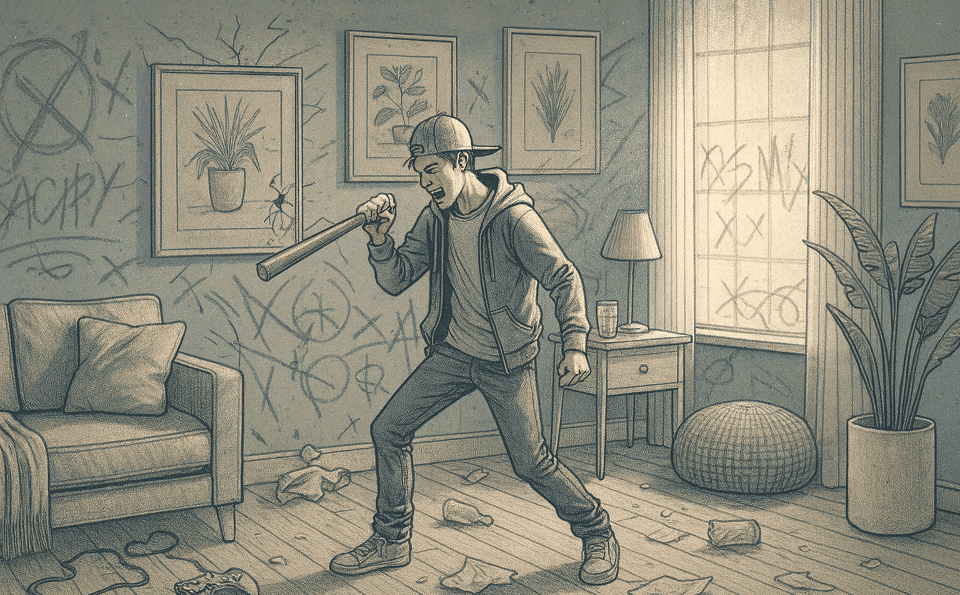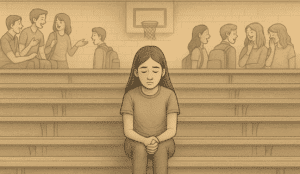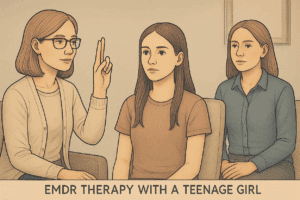Key Takeaways
- Conduct disorder goes beyond typical teenage rebellion, showing up as persistent aggression, rule-breaking, deceit, or property destruction that impacts relationships and daily life.
- It develops through a mix of factors, including brain development, family environment, and past trauma, which together shape how teens regulate emotions and connect with others.
- Diagnosis requires a thorough professional evaluation, since symptoms can overlap with anxiety, depression, or trauma responses, and an accurate assessment guides effective treatment.
- Treatment combines therapy, family involvement, and skill-building, helping teens manage emotions, improve relationships, and create long-term positive changes.
- Mission Prep Healthcare specializes in comprehensive adolescent programs that address conduct disorder through residential and outpatient services, emphasizing family healing and long-term behavioral change.
Understanding Conduct Disorder Beyond the Behavior
When teens consistently break rules, act aggressively, or seem to disregard the rights of others, it’s easy to dismiss it as rebellion or bad choices. But conduct disorder is a complex mental health condition that runs much deeper than defiance. It’s a persistent pattern of behavior where teens struggle to respect boundaries, show empathy, or follow social norms.
Unlike typical teenage testing of limits, conduct disorder involves serious behaviors that harm others and violate basic rules of society. These teens are often struggling with deep emotional pain, trauma, or developmental challenges that make it hard to connect with others in healthy ways.
The behaviors associated with conduct disorder typically emerge gradually and worsen over time without proper intervention. This progression isn’t inevitable, though. With the right therapeutic support and family involvement, teens with conduct disorder can learn healthier ways to cope and rebuild damaged relationships.
| Mission Prep Healthcare: Adolescent Mental Health Care Mission Prep Healthcare specializes in mental health treatment for teens aged 12-17, offering residential and outpatient programs for anxiety, depression, trauma, and mood disorders. Our therapies include CBT, DBT, EMDR, and TMS, tailored to each adolescent’s needs. With a structured, supportive environment, we integrate academic support and family involvement to promote lasting recovery. Our goal is to help teens build resilience and regain confidence in their future. Start your recovery journey with Mission Prep Healthcare today! |
Recognizing the Signs: Conduct Disorder Symptoms in Teens
Conduct disorder symptoms fall into several distinct categories, each reflecting different ways teens might struggle to respect boundaries and connect appropriately with others.
Aggression Toward People and Animals
Teens with conduct disorder may display physical aggression that’s more intense than typical conflicts. This might include bullying others, getting into frequent physical fights, or using weapons. They may also show cruelty toward animals, which often signals deeper emotional struggles and difficulty with empathy.
Property Destruction and Theft
Deliberately damaging property, whether at home, school, or in the community, is another common sign. This isn’t accidental damage but intentional destruction that may serve as an outlet for frustration or anger. Similarly, stealing from family members, stores, or others reflects a pattern of disregarding others’ rights.
Serious Violations of Rules and Laws
These teens may consistently break important rules at home and school, run away from home overnight, or engage in behaviors that could lead to legal consequences. The pattern involves persistent disregard for authority and social expectations.

Teens with conduct disorder often struggle with emotional regulation, making it difficult to express frustration or anger in healthy ways.
Deceitfulness and Manipulation
Frequent lying, even about small things, and using manipulation to get what they want are common patterns. This represents a consistent approach to relationships that erodes trust with family and friends.
What distinguishes these behaviors from normal teen boundary-testing is their intensity, frequency, and impact on relationships and daily functioning.
What Causes Conduct Disorder in Teenagers
Conduct disorder doesn’t develop from a single cause but emerges from a complex mix of biological, psychological, and environmental factors.
Brain Development and Biology
The teenage brain is still developing, particularly areas responsible for impulse control and empathy. Some teens may have differences in brain structure that make it harder to regulate emotions or consider consequences before acting.
Environmental and Family Factors
Family dynamics play a significant role. Inconsistent discipline, harsh punishment, neglect, or exposure to violence can all contribute. When teens don’t experience stable, nurturing relationships early on, it becomes harder to form healthy connections and understand appropriate boundaries.
Trauma and Adverse Experiences
Many teens with conduct disorder have experienced trauma, whether from abuse, witnessing violence, or other overwhelming experiences. Trauma can disrupt normal emotional development and leave teens feeling disconnected from others.
Understanding these contributing factors helps families and professionals approach treatment with compassion rather than judgment, recognizing that healing involves addressing underlying causes.
Getting a Proper Diagnosis: What to Expect
Getting an accurate diagnosis involves a comprehensive evaluation by qualified mental health professionals who specialize in adolescent behavior and development. The assessment includes detailed interviews with both the teen and family members to understand the full scope and history of concerning behaviors.
It’s important to rule out other conditions that might look similar to conduct disorder. Depression, anxiety, trauma responses, or attention difficulties can sometimes manifest in ways that appear defiant or aggressive. A thorough evaluation ensures that underlying issues are identified and addressed appropriately.
The diagnostic process also examines strengths and positive relationships in the teen’s life, identifying resources that can be built upon during treatment.
Effective Treatment Approaches That Work
Treatment for conduct disorder focuses on helping teens develop healthier ways to manage emotions, resolve conflicts, and build positive relationships.
Behavioral Therapy and Skills Training
Cognitive-behavioral therapy helps teens identify triggers for aggressive behavior and develop alternative responses. They learn practical skills for managing anger, solving problems, and considering consequences before acting.
Family Therapy and Systemic Approaches
Since family dynamics often play a role, family therapy addresses interaction patterns that may inadvertently reinforce problematic behaviors. Parents learn more effective discipline strategies, while family members work together to rebuild trust and communication.
Therapeutic Community Programs
Structured residential or intensive outpatient programs provide teens with consistent routines, clear expectations, and opportunities to practice new skills in a supportive environment.

Family therapy sessions focus on rebuilding trust and communication while teaching everyone healthier ways to interact together.
Social Skills and Emotional Regulation Training
Many teens with conduct disorder struggle with empathy and social connection. Therapeutic programs teach specific skills for understanding others’ perspectives and building positive relationships.
The key to successful treatment is consistency, patience, and building internal motivation for change rather than relying solely on external consequences.
How Parents Can Support Their Teen Through Treatment
Creating Structure and Consistency
Clear, predictable routines help teens feel safer and more regulated. This means consistent expectations and follow-through on consequences. When teens know what to expect, they’re better able to make positive choices.
Maintaining Connection Despite Challenges
Maintaining an emotional connection is vital for recovery. This might mean finding small moments of positive interaction or expressing care even while enforcing boundaries.
Working Collaboratively with Professionals
Treatment works best when parents are active partners, attending therapy sessions, implementing strategies consistently at home, and communicating regularly with treatment providers.
Recovery from conduct disorder isn’t linear. Celebrating small improvements and maintaining hope for long-term change helps create the patience needed for the healing process.
Why Mission Prep is Your Partner for Teen Conduct Disorder

Mission Prep’s therapeutic spaces are designed to feel comfortable and welcoming, helping teens feel safe enough to engage in behavioral change work.
Mission Prep Healthcare understands the complexity of behavioral challenges and provides comprehensive support designed specifically for adolescents and their families. Our programs serve teens ages 12 to 17 through residential, outpatient, and telehealth options personalized to each individual’s needs.
We recognize that conduct disorder affects the entire family system, which is why our approach involves everyone in the healing process. What sets Mission Prep apart is our focus on building internal motivation for change rather than relying solely on external controls.
Our therapeutic environment helps teens develop genuine empathy, emotional regulation skills, and healthy relationships through structured yet supportive programming that feels more like home than a clinical setting.
Our experienced team understands that behind challenging behaviors are often pain, trauma, or developmental struggles that need compassionate, professional attention. Families work closely with our clinical team to develop skills for supporting their teens’ progress while taking care of their own emotional needs.
Every aspect of our program prepares teens and families for long-term success, providing tools and strategies that extend far beyond treatment.
Frequently Asked Questions (FAQ)
How can I tell if my teen’s behavior is conduct disorder or normal teenage rebellion?
Normal teenage testing of limits is occasional and situational, while conduct disorder involves persistent patterns lasting more than six months that significantly impact relationships and daily functioning. If concerning behaviors are escalating, consult a mental health professional.
Can conduct disorder be treated without medication?
Yes, conduct disorder responds well to behavioral therapy, family therapy, and structured therapeutic programs that focus on skill-building and emotional development. Many teens improve significantly through therapy approaches that address underlying causes.
What should I do if my teen refuses treatment?
Start with honest conversations about your concerns and the impact of their behavior. Sometimes teens are more willing to engage when they have input in choosing their therapist or treatment program.
How long does treatment typically take?
Recovery timelines vary depending on symptom severity, family involvement, and individual factors. Some teens show improvement within months, while others need longer-term support. Consistent engagement and patience are key.
What programs does Mission Prep offer for conduct disorder?
Mission Prep provides residential, outpatient, and telehealth treatment programs for adolescents ages 12–17. Our services address behavioral challenges, emotional regulation difficulties, and family dynamics through personalized, evidence-based approaches emphasizing lasting change and family healing.


















